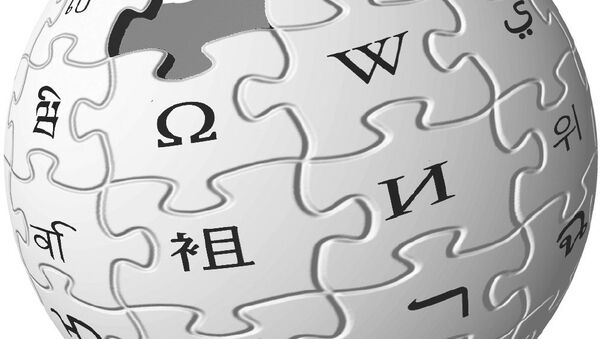The crowdsourced knowledge database was born in 2001 as a textbook case of decentralized project, governed collectively by its contributors through norms enforced by consensus. Still, a real leaderless democracy Wikipedia is not, new research shows.
Writing on online journal Future Internet, social scientist Simon DeDeo concluded that the free encyclopedia works in a fashion that is very similar to an old-school bureaucracy.
"It looks like a university system, or like General Electric, or AT&T," he said.
DeDeo tapped into Wikipedia's colossal trove of data (5 million articles, innumerable pages of user discussions, 587 million of edits) and ended up building a model of how the website changed and evolved over time.
Open data for the Evolution of Wikipedia’s Norm Network now available at https://t.co/wZOhgdswpr
— Simon DeDeo (@SimonDeDeo) 21 April 2016
What he and his colleague Bradi Heaberlin found is that the early "wikipedians" (i.e. the site's users) solidified into a powerful elite that is the de facto ruler of the project.
"You start with a decentralized democratic system, but over time you get the emergence of a leadership class with privileged access to information and social networks," DeDeo said.
"Their interests begin to diverge from the rest of the group. They no longer have the same needs and goals. So not only do they come to gain the most power within the system, but they may use it in ways that conflict with the needs of everybody else."
More concretely, DeDeo explains how the rules on which Wikipedia is founded were established by less than 100 users. Many of them, now, still hold significant sway on the site's functioning as the so-called "super-editors" — a clique of top administrators that newcomers rarely manage to join.
Wikipedia is basically a corporate bureaucracy, according to a new study https://t.co/OTa1i4bPjn pic.twitter.com/WufCHVxfK8
— Gizmodo (@Gizmodo) 25 April 2016
This concentration of power in the hand of a close group that also decided the website's governing norms, according to DeDeo, could end up threatening the very essence of Wikipedia.
"Recent work has suggested that early users later form an oligarchy that monopolizes power, subverts democratic control, and comes into increasing conflict with the larger collective," the paper reads.
"If this is true, the enduring centrality of their own interests in the norm network may be a source of power."



